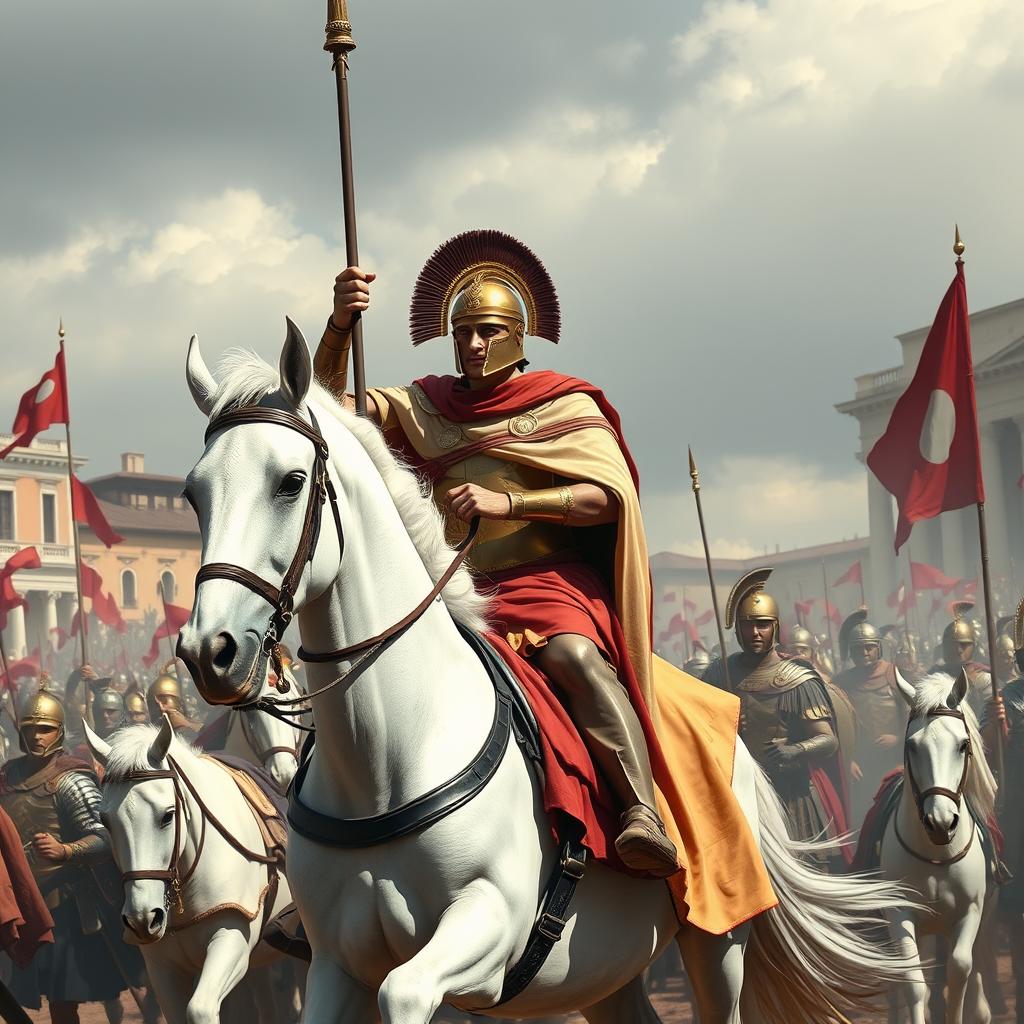How to conquer the world according to Julius Caesar

Conquering the world isn’t everyone’s dream. But for those who entertain the thought, it’s worth clarifying: world domination is not about brute force, but about strategy, vision, and charisma. Caesar wasn’t the strongest, but he was the most astute. And from him, we can draw a short guide—useful to generals, politicians, entrepreneurs, and visionaries—on how to build lasting power. Yes, even on how to seduce the world.
- Find (or create) your invisible alliance
Caesar’s first masterstroke was the First Triumvirate: an unofficial pact between Caesar (the rising star), Pompey (the established general), and Crassus (the banker). Three complementary powers, united by mutual interests, not by affection.
▶ Lesson: find those who have what you lack. Unite talent, influence, and resources. Don’t look for harmony—look for synergy.
- Start from the periphery
Rome was suspicious. So Caesar turned to Gaul. Far from the Senate’s watchful eyes, he built his legend, won battles, enriched his army, and earned the soldiers’ loyalty.
▶ Strategy: if the center ignores you, act on the margins. Great endeavors are born where no one is looking.
- Tell your own epic
Caesar wrote De Bello Gallico in third person, with a sober tone, but every line was propaganda. He was the hero, Rome was the cause, victory was inevitable.
▶ Timeless principle: he who controls the story, controls reality. If you don’t tell your own story, someone else will—and you won’t like it.
- Cultivate loyalty, not obedience
Caesar’s soldiers loved him. He shared their hardships, rewarded courage, and treated them as brothers-in-arms. His army followed him even against Rome.
▶ Leadership key: don’t lead by fear. Lead by presence, recognition, and example.
- Be bold, but not reckless
Crossing the Rubicon with a single legion—about 5,000 infantry and 300 cavalry—was both theatrical and strategic. A calculated risk. Caesar wasn’t crazy: he acted when he knew he had the advantage.
▶ Advice: boldness impresses, but preparation wins. Improvisation must look like audacity, not madness.
- Forgive (when it serves you)
After the civil war, Caesar spared many enemies. Not out of kindness, but out of wisdom. He disarmed them with clemency, gained moral credit, and left them weakened.
▶ Political strategy: forgiveness creates dependence. To humiliate without humiliating is the subtlest form of domination.
- Celebrate every step
Triumphs, coins bearing his face, banquets, statues. Caesar turned every victory into myth. Power feeds on imagination, not just results.
▶ Branding lesson: every victory must be celebrated, amplified, ritualized. If you win and no one knows, it’s as if you didn’t win at all.
- Seduce with your mind (and not only)
Caesar’s charm wasn’t just military. He was cultured, eloquent, seductive. Cleopatra didn’t fall for a soldier, but for a man who could talk, listen, and think.
▶ Practical advice: a true leader conquers more with words than with weapons. And those who fascinate don’t need to command.
- Rules are tools, not cages
Caesar bypassed laws, bent traditions, invented precedents. Not out of whim, but for political necessity. He knew power is not granted—it’s taken.
▶ Warning: rules serve those who don’t have power. If you want power, learn how to rewrite the rules.
- Believe in your destiny more than others do
Many thought Caesar was pushing too far, challenging fate. But he knew he was protected by the gods—or at least, he acted like it. He spoke often of his genius, of Fortuna, and above all, he believed—unshakably—that he would win.
▶ Final motivation: the world belongs to those who believe. To those who know, deep inside, that they will succeed—even when everyone says otherwise. The true conqueror acts as though heaven walks beside him. And sometimes, it does.
And today?
Of course, no one rides into Rome on horseback anymore. But the world is still being conquered—through brands, movements, visions. Every great endeavor begins with the same rules.
The charisma of a leader, the alliance of different forces, the creation of a compelling narrative, the loyalty of a team, the ability to act at the right moment—these are still the tools that change history.
Whether you’re a general or an entrepreneur, the lesson remains: power is not inherited. It’s built.
And it’s built through clarity, unshakable faith, and a powerful narrative.
Caesar teaches us this: whoever has the courage to cross the Rubicon never goes back.
And often, it is the world itself that comes to meet him.
by Brunus

